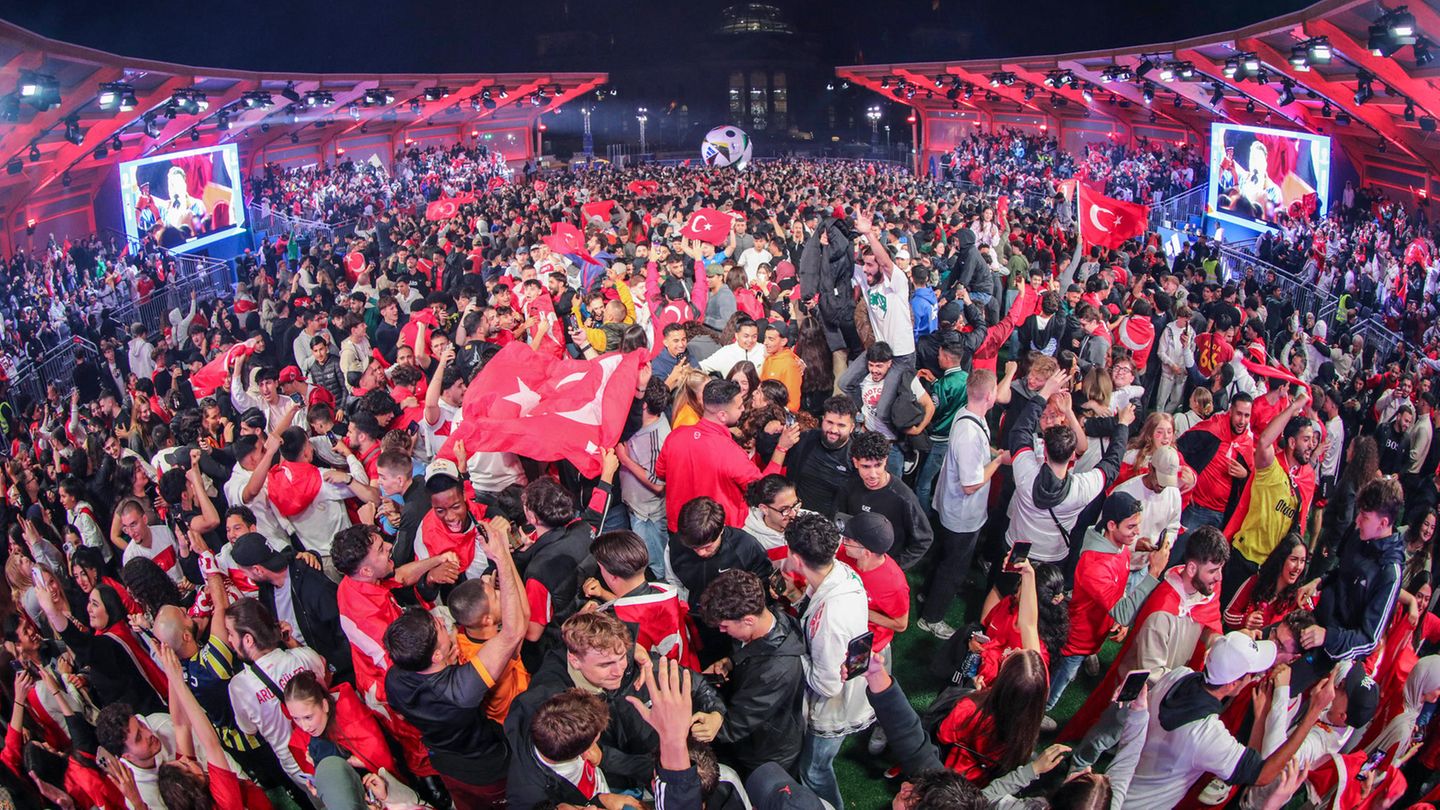The Turkish fans are the loudest, most passionate and most enthusiastic at the 2024 European Championship. Things are going well in sporting terms too: your team is in the quarter-finals. Is one connected to the other?
There is a volume gradient at the 2024 European Football Championship. The Turkish fans are unassailable at the decibel summit, whipping their team forward so frenetically that they apparently have no choice but to be successful – on Saturday they will play in the quarter-finals against the Netherlands.
A completely different picture: After the poor 1:1 draw in the group phase against Switzerland, the German national coach Julian Nagelsmann complained about the subdued cheers of the German spectators. An excuse? Or a factor? What influence do the fans actually have on a football match?
Fabian Wunderlich is a scientist at the Institute for Training Science and Sports Informatics at the German Sport University in Cologne and, among other things, deals with sports data. He says: “It can be assumed that spectators have a certain influence on the game.” He attributes this to the notorious home advantage, which means that the host team will have it easier. For Wunderlich, it is clear: “The home advantage exists, which means that football teams win more often in their own stadium in front of their own fans than away. There is hardly any effect in sport that is so well documented.”
This is what lies behind the home advantage in football
It is difficult to find a reason for this, because you would have to be able to look into the minds of players during the game. According to Wunderlich, various factors are being discussed. The familiarity of the environment, for example, the travel stresses of the away team or even the hormones that make the footballers want to defend their territory. But also the influence of the fans on the professionals – and the referees. According to Wunderlich, “their decisions in certain situations may be influenced by the volume of the fans”, experiments have shown. In fact, away teams see red cards more often than the home teams. But there is a big question mark over whether this is really the fans’ fault.
Because the home advantage also existed in games during the Corona period – and initially no fans were allowed into the stadiums. What was a tragedy for viewers on TV because of the silence turned out to be an ideal object of observation for scientists like Fabian Wunderlich, because the pandemic “has given us the opportunity to evaluate the numerous ghost games and even without spectators, the home teams are still significantly more successful.” However, the home advantage in empty stadiums without spectators was not quite as strong as in games with fans.
Even if the reasons cannot be investigated, there is some evidence that fans could very well be a factor. Turkey’s success can also serve as evidence that it has a small home advantage thanks to its close ties with Germany and the many Germans of Turkish descent. “We see the videos that people are out on the streets and happy,” Turkish midfielder and captain Hakan Calhanoglu told the German Press Agency. “We want to keep making people happy.”
Euro 2024: Turkish fans motivate their team
However, and this is the bad news for Turkey, the home advantage can quickly become a disadvantage. Namely when the expectations of the frenetic fans create pressure to perform. “choking under pressure” is the technical term, and loosely translated it means something like failing under pressure.
The phenomenon actually exists. Wunderlich explains: “In recent research, for example, we were able to prove that the risk of missing a penalty is increased in pressure situations.” Bayern Munich can tell you all about it. In 2012, the “Finale Dahoam”, the Champions League final in the home arena against Chelsea FC, went from home advantage to trauma. Bayern were leading, conceded the equalizer – and lost on penalties.
Source: Stern
I am Pierce Boyd, a driven and ambitious professional working in the news industry. I have been writing for 24 Hours Worlds for over five years, specializing in sports section coverage. During my tenure at the publication, I have built an impressive portfolio of articles that has earned me a reputation as an experienced journalist and content creator.




